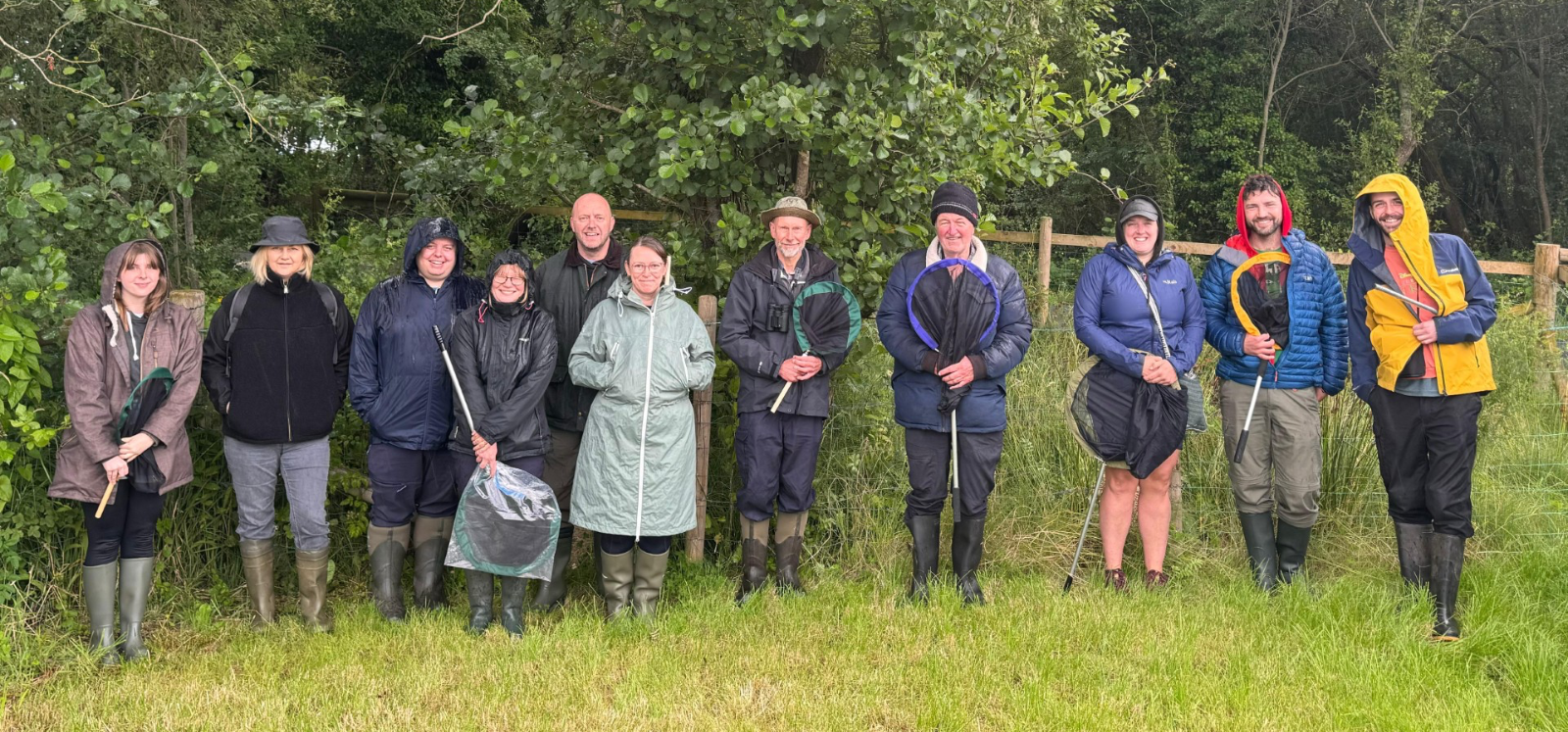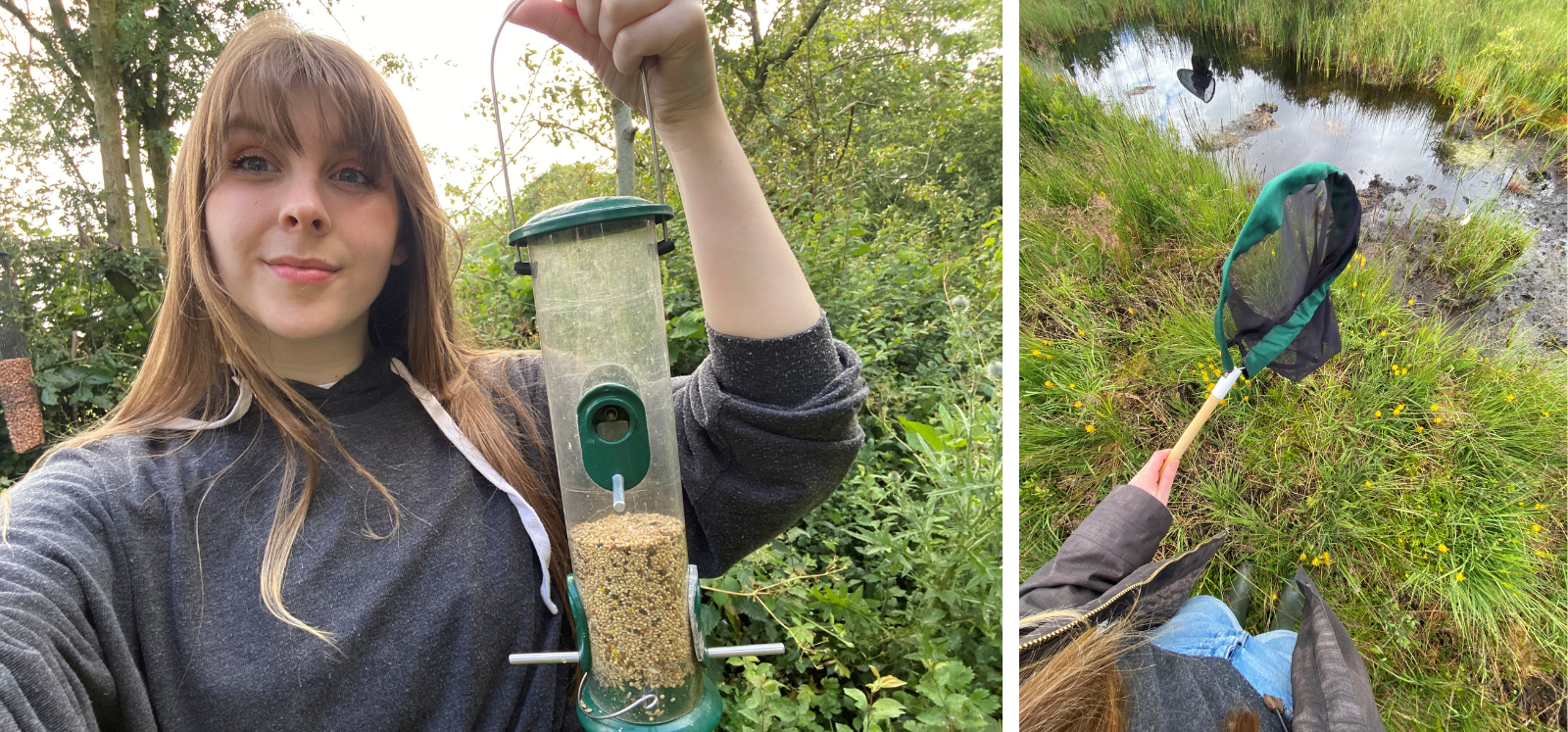My placement with the RSPB
"Challenging, exciting, and rewarding" - Kathryn Sloan, Ecological Management and Conservation Biology student, shares her placement experience with the RSPB.

My placement balanced independent remote work and field activities—the remote element involved creating habitat maps of the Montiaghs Moss SAC. This was mostly carried out on campus in the Postgraduate building. Field activities were 2 to 3 days a week on various RSPB reserves, predominantly Portmore Lough, but also Montiaghs Moss and Lough Beg. Here, I worked with a lovely team of volunteers and RSPB staff and got involved in moth, butterfly, dragonfly, breeding wader, wildflower, and predator surveys. I also got stuck into scrub and bramble clearing, which was hard work but very enjoyable and rewarding. The placement’s hybrid on-site/ remote nature was perfect for me, and improved my time management, interpersonal, and independent working skills.
How did you find your placement?
The Careers team offers a lot of guidance and support in terms of finding a placement, CV writing, and interview skills. The earlier you start thinking about placements the better. Take advantage of the support sessions and appointments offered by the uni. They were useful for putting my mind at ease and giving me new avenues or options, I hadn’t considered. The careers hub on Teams was always updated with new placement opportunities which is how I found mine.
Applying for jobs is always a little nerve-wracking for me, it can be difficult to sell yourself. The careers team were so supportive in giving me constructive feedback on my CV, which helped me to secure some interviews. My advice would be to do some research and prepare some notes before an interview; I had an instance where I was very underprepared causing my nerves to get the better of me. If you are unsure, don’t be afraid to ask for support. There may be placements you don’t hear back from but don’t be disheartened, keep applying and the right one will come along. My other interviews went much smoother and the whole process has improved my confidence.
Did you enjoy your placement?
The placement was incredibly enjoyable, of course, I was nervous initially, but as the weeks went on, I found my rhythm. Everyone was so friendly, and I instantly felt welcomed. I have gained so much new experience in GIS, independent research, and practical field skills. I took the opportunity to ask as many questions as possible, absorbing the combined expertise of the staff and volunteers, it has been invaluable. My species identification skills have improved and my theoretical knowledge of ecological functions was put into context. My favourite moments were sitting out in nature with the team and a cup of tea, surrounded by birds and flowers, just laughing, sharing stories, and knowing we were all doing something good for the world.

What insights have you gained from this placement?
This placement has strengthened my confidence and proficiency in GIS, and I am eager to use this in my future career, I have now been looking into jobs with a geospatial focus. Also, I was surprised at how much I enjoyed manual fieldwork like scrub cutting or being out in torrential rain looking for damselflies. Before this placement, I was a lot less outdoorsy, now, I would love a job that combines indoor and outdoor work.
Could you give advice to students who are considering applying to similar work placements?
I would recommend a placement like this. It provided diverse tasks and activities and challenged my interpersonal, practical, and independent learning skills. I suggest listing all your current skills and those you would like to develop to determine how the placement opportunity aligns with them. I was under-confident in my GIS abilities beforehand, but this placement has challenged and stretched my abilities. Now I feel more assured in myself. I highly recommend applying for placements that pique your interest even if you don’t feel fully confident.
My key advice would be to step outside your comfort zone, and you might surprise yourself with what you can achieve!
Kathryn Sloan
MSc Ecological Management and Conservation Biology
